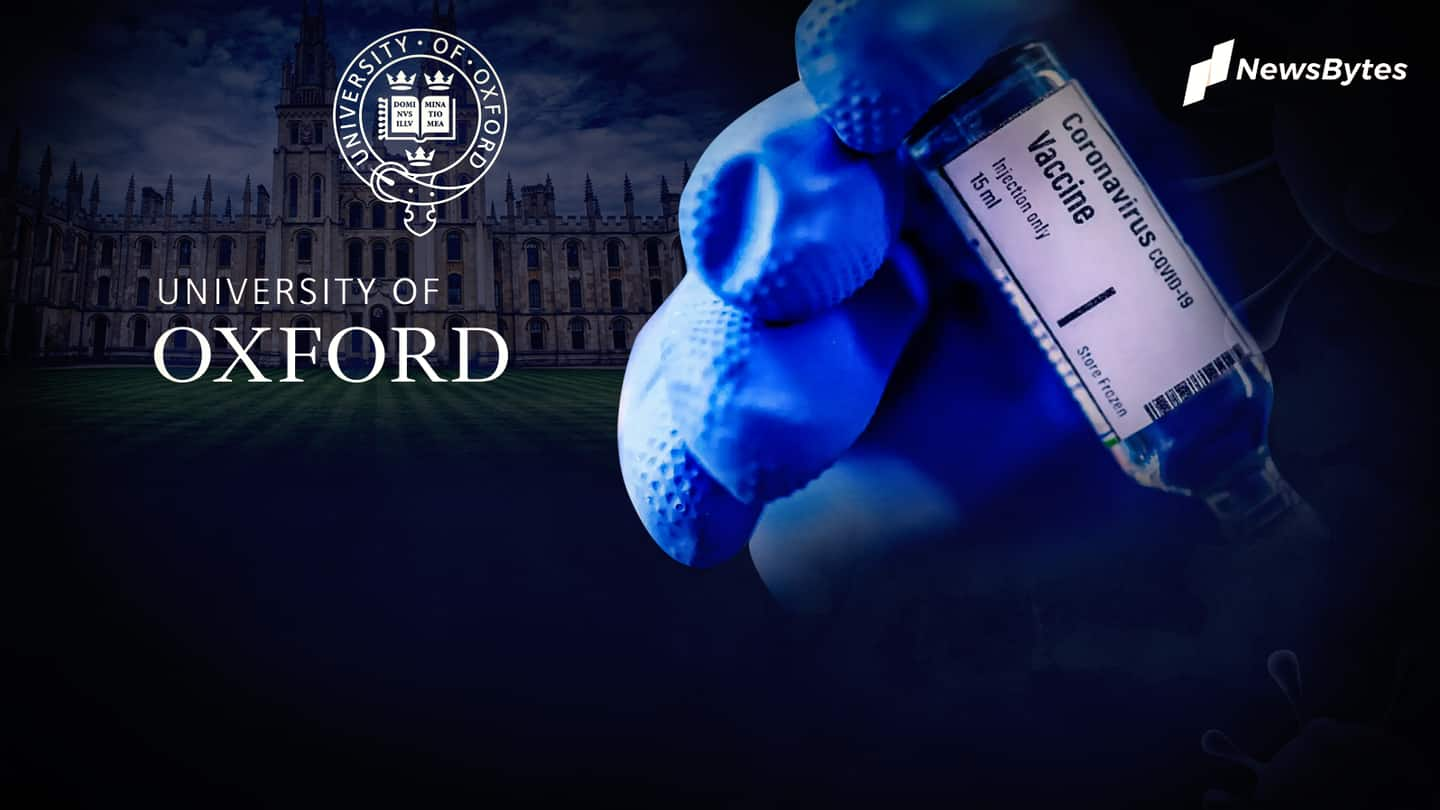
Oxford's vaccine, India's best shot against coronavirus, is 70% effective
What's the story
The coronavirus vaccine being developed by Oxford University and British pharma giant AstraZeneca is 70% effective, results from large-scale trials have shown, multiple reports said on Monday. Though its efficacy doesn't match that of Pfizer and Moderna's, the vaccine by Oxford has an upper hand because it is cheaper. India, the second-worst hit nation, has pinned hopes on the vaccine. Here's what happened.
Background
Oxford researchers fought against time to provide relief to world
The researchers at the famed university concluded the decades-long process in merely 10 months — a reflection of how desperate the world is to control the pandemic, whose first known case was reported in China in November. So far, 1,393,879 have died of the disease and 59,002,157 have been infected. That's not it — the economy is in shatters and healthcare systems have collapsed.
Trial
20,000 volunteers were involved in the trial
The Oxford vaccine, dubbed AZD1222, was seen as the front-runner in the race. To arrive at the "70% efficient" conclusion, the researchers involved over 20,000 volunteers (half in the UK, the rest in Brazil). 30 cases cropped up where people got infected despite getting inoculated with both the doses. 101 COVID-19 cases emerged in people who were given a placebo injection.
Difference
Two high doses generated 62% protection: Report
When participants got two high doses, the protection was 62%; a low dose first and a high one later increased the protection to a staggering 90%, reports BBC. Expressing pleasure at the results, Professor Andrew Pollard, the trial's lead investigator, said the data about 90% effectiveness was "intriguing and would mean we would have a lot more doses to distribute."
Press note
None of the candidates during trial had to be hospitalized
In a press release, Oxford informed that none of the candidates who received the doses suffered from severe illness or had to be hospitalized. This assumes significance as one volunteer died last month, casting doubts on safety. It was later revealed that the deceased was never given a shot. The university added large-scale manufacturing was underway in over 10 countries for "equitable global access."
Storage
It doesn't require an exhaustive storage infrastructure
Moreover, the vaccine can be easily stored at a refrigerator temperature, said Oxford University, adding that existing healthcare systems won't have to be tweaked for it. On the findings, Professor Sarah Gilbert, Professor of Vaccinology, said, "The announcement today takes us another step closer to the time when we can use vaccines to bring an end to the devastation caused by SARS-CoV-2."
Working
How does this vaccine work?
Notably, the vaccine has been made from a weakened version of a common cold virus, or adenovirus, that causes infections in chimpanzees and has been genetically modified to not grow in humans. It contains the gene that makes the spike protein of the novel coronavirus and mimics a COVID-19 infection to prime the body to generate neutralizing antibodies to fight off the actual virus.
Availability
Efficacy is known, when will the vaccine be available?
With results of vaccine candidates coming in, a question about when common people will get injected has been looming large. BioNTech, the German company developing the vaccine with US-based Pfizer, said last week, its doses will be out before Christmas. Following Pfizer, Moderna's vaccine will be available. Similarly, Oxford's vaccine will be released after approvals from regulators. This process could consume a few weeks.
India
Common Indian citizens may get doses by April 2021
India has high expectations from Oxford's vaccine, called Covishield in the country. The world's largest vaccine manufacturer, Serum Institute of India (SII), has joined hands with Oxford-AstraZeneca for mass production. SII CEO Adar Poonawalla said last week that the company will seek approval for giving the vaccine to high-risk individuals by December. Common citizens will get the doses by April 2021, he claimed.
Quote
Poonawalla was happy with the trial results
Evidently elated, Poonwalla tweeted, "I am delighted to hear that, Covishield, a low-cost, logistically manageable & soon to be widely available, #COVID19 vaccine, will offer protection up to 90% in one type of dosage regime and 62% in the other dosage regime. (sic)"